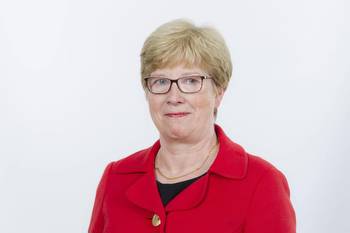Gambling commission reports decrease in problem gambling despite increase in participation

The UK Gambling Commission has reported a 3% increase in gambling participation coupled with falling problem gambling rates of 0.2% in the year to March 2022. For problem gambling, this is a decrease from the previous year, which recorded a rate of 0.4% and down from 0.6% in 2020. According to the Betting & Gaming Council (BGC), in real terms, that’s a drop from 225,000 to 113,000 participants recording problem gambling. The data can be further broken down, showing a rate of problem gambling at 0.2%, while moderate and low-risk rates are stable at 0.9% and 1.4%, respectively. The drop in problem gambling figures was most noticeable among male gamblers.
The survey data is part of the UKGC’s quarterly telephone survey conducted by Yonder Consulting. It is a representative sample of 4,018 adults and covers gambling participation and problem gambling prevalence. The data has been welcomed by many and is released against the backdrop of the upcoming Gambling Review (which is expected to increase industry safeguards, including possible affordability checks, deposit limits and the broader operating environment) and an increase in spending on black market sites (with spending doubling in the past two years according to PwC research undertaken on behalf of the BGC).
The Commission has noted the increase in gambling participation is due to the return of in-person gambling post pandemic restrictions; meanwhile, online gambling participation has continued to grow steadily. The decrease in problem gambling figures is positive and reinforces calls from the BGC for ministers to take an “evidence-based approach” in the forthcoming white paper. Meanwhile, other stakeholders have been keenly debating whether safeguarding techniques work and whether the new regulatory measures are warranted.
The potential reasons for the decrease are thought to be the voluntary and regulatory initiatives, including those taken by the BGC, such as promoting safer gambling tools, like deposit limits and reality checks, more investment in research and treatment, and stronger protections for younger players. Alongside changes to the Commission’s Licencing Conditions and Codes of Practice, which have tackled unclear bonus terms and conditions, and set new strict rules for VIP schemes (ensuring that spending is affordable and sustainable, and monitoring for gambling-related harm).
However, with the gambling review well underway and increased black market participation, there is warranted concern that increased regulation will lead to further growth in offshore gambling, putting consumers at additional risk rather than protecting more players. This has already been seen in countries such as France and Norway, that have increased restrictions, which have coincided with significant increases in offshore gambling.
Deposit and stake limits have been a hot topic of the upcoming Gambling Review, with increased regulation expected to cover spin speeds and a ban on features that speed up play or celebrate losses. Some ministers have even advocated for monthly deposit limits of £100 and player affordability checks. The suggested deposit limit is a particularly contentious issue, as it would greatly restrict consumers at licensed UK gambling sites. While affordability checks are warranted (as evidenced by issues with VIP schemes), they are considered unnecessarily intrusive. However, there is evidence from the Gambling Treatment & Research Clinic, which assed 40,000 Australian gamblers, finding that players do not use voluntary budget limits, but when made mandatory, they usually set a limit and stick to it rather than opt out.
More recently, the UKGC has also identified that wagering requirements may encourage excessive play. It’s currently unclear whether wagering requirements will be covered in the White Paper. Still, the industry has already seen some self-correction in this area, with the growth in popularity of no wagering casino sites and fairer promotions. This may have also attributed to the decrease in problem gambling figures by providing consumers with more responsible platforms and bonus options. Yet, most operators still stick to higher wagering requirements; thus, we could soon see a maximum cap in this respect and, therefore, a greater move toward low wagering requirements.
What seems clear is that the mix of voluntary measures and greater funding for research and treatment undertaken by operators through the BGC, along with current guidance in the form of continuously updated LCCPs, has most likely positively affected the rate of problem gambling. Overall, the data shows that the UK gambling market can grow sustainably, attracting new players in a safe manner. The majority of UK consumers gamble responsibly and without issue; hence new regulations must strike a careful balance in safeguarding those who are at risk, employing strategies that are proven to work while not penalising all consumers and encouraging the growth of the unregulated offshore market.
Please play responsibly. For more information and advice visit www.begambleaware.org

































